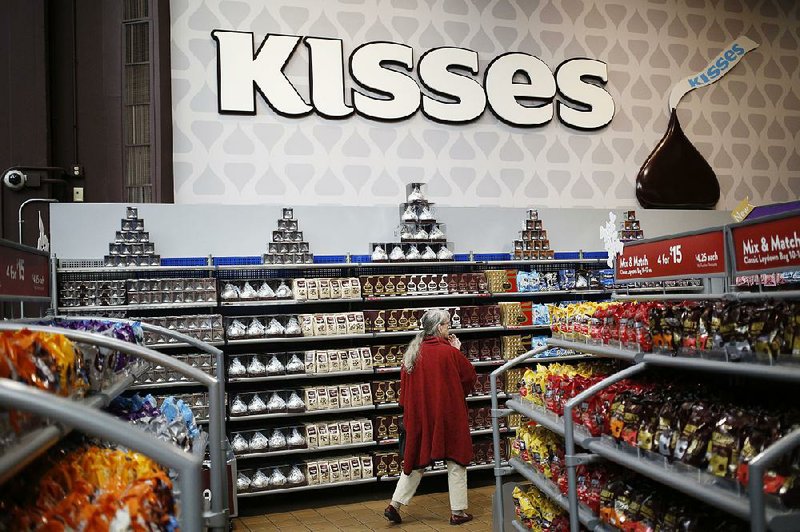Hershey is spending $500 million in the hopes of producing its iconic chocolate Kisses from more sustainable cocoa.
Through its so-called Cocoa for Good program, the company will invest the funds through 2030 to support four key areas: nourishing children, empowering youth, building prosperous communities and preserving natural ecosystems. The initiative's goals include eliminating child labor and increasing shade-grown cocoa, which can be productive for as much as 15 years longer than plants grown in full sun.
World cocoa supplies are tightening after a price plunge that hurt global farmers and forced lower production, eroding a global surplus. The shifting supply outlook caused a whipsaw in the market. Through last week, futures in New York had surged 39 percent this year after tumbling 41 percent over the previous two.
Recently, a measure of 60-day historical volatility jumped to the highest since September as futures tumbled 5.2 percent to $2,498 a metric ton, the biggest loss for a most-active contract since May 24.
While recent "extreme" price volatility is typical of agricultural commodity markets, "we fully appreciate the complexity of addressing some of the challenges" for grower communities, Susanna Zhu, the company's chief procurement officer, said in a telephone interview from Abidjan, the commercial capital of Ivory Coast. "That's why we are committing significant resources for the next decade."
Consumer-focused companies from Unilever to McDonald's Corp. have invested more in sustainable sourcing as customers increasingly look for those credentials before spending their dollars. Starbucks has raised about $1.3 billion from the public markets over the past two years to fund its ethical coffee farming initiatives through sustainability bonds.
The Hershey, Pa.-based chocolate giant has increased its buying of certified and sustainable cocoa, which accounted for more than 75 percent of its total cocoa purchases last year. The company has said it remains on track to reach 100 percent by 2020.
The company's new program will start with a focus on Ivory Coast and Ghana, the world's top cocoa producers. Hershey is seeking "a holistic" approach to sustainability and has plans to reach other producing areas in the future, including in South America, Zhu said. She and other company executives have met with Ivorian government officials, private sector executives and small farmers to discuss the project.
About 95 percent of world cocoa output is produced by small farmers, many of whom still use traditional growing methods. Because global yields have stayed stagnant, supply increases have come primarily through expansion of cultivated areas. Ivory Coast, the No. 1 grower, lost 64 percent of its forest cover from 1990 to 2015 largely because of cocoa farming, according to IDH, a sustainable trade initiative.
At the same time, chocolate demand continues to grow. Global retail sales reached $102.3 billion in 2017 and are expected to climb 8.2 percent by 2022, according to researcher Euromonitor International.
To meet the supply needs with sustainability in mind, Hershey's plans include a nutritional program to feed children in Ghana, with a goal of expanding into Ivory Coast as local governments help with implementation. The company will also help train growers to become more efficient and help processors meet international supplier requirements, among other initiatives.
SundayMonday Business on 04/08/2018
